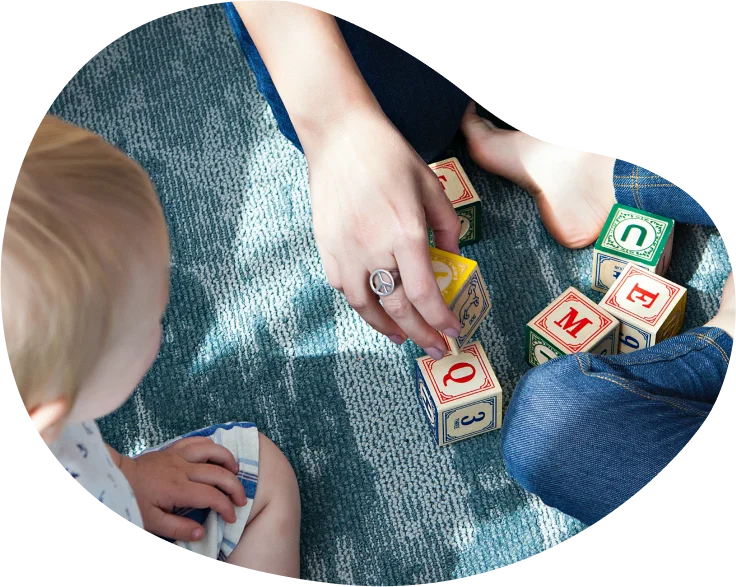
Back To School Promotion
Sign up with an award-winning preschool and enjoy special enrolment discounts!
Home How to help your child build social skills
Preschool social skills depend on a few core competencies. These include self-control, empathy, and verbal ability. Although it’s undeniable that learning and becoming proficient in academics early on can be a massive contributor to helping your children become successful students in school, developing social skills is just as crucial to becoming socially adept.
Parents also play a crucial role in helping their children to learn about emotions and human nature. Sharing toys and cooperating on activities are just some of the activities that a child must know to build on their self-esteem and confidence. This helps them become comfortable in social settings and perform better under stress. In this article, we have prepared four popular and successful ways for you to help your children build their social skills.

Imagine yourself as a child having your toy taken away suddenly. They would be experiencing something new and unknown to them. An emotion. It could be anger, sadness, or frustration, and they would not know how to deal with it. How would they know if they didn’t understand emotions? It’s normal for your child to act instinctively on these feelings and throw a tantrum, scream at you, or cry. The most important thing here is understanding why they are doing it and how they can address them.
Treat your child like a tiny human. Don’t tell them things such as “you will know why when you grow up” or “It’s because I say so”. They will not understand these statements, and these statements will only intensify their emotions. Explain their emotions and their causes to them. Share suggestions to cope with negative feelings instead of scolding them. They learn how to address their emotions better and manage them over time.
It is crucial to take the time to hear your children out and help them genuinely understand. Remember, children model their behaviour after yours, so they will learn how you react to negative emotions yourself and will do the same in the future.
Rules. Parents will set these rules automatically for their children’s safety and indicate when something goes wrong. For example, in a child’s case, if they refuse to pick up their toys but usually do so automatically on other days, it may be because they may not feel emotionally well.
We use the term inductive discipline, which explains the reasons for rules and their logic to children when they misbehave. It is a conversational approach to child-rearing. Scientific and in-depth research proves that this approach promotes the development of empathy and moral awareness in children. Children will feel a sense of unfairness and anger if rules are imposed on them without reason. They know when they are being treated unfairly, mainly when not explained.
Studies have shown that preschool children brought up by parents who practice inductive discipline are less likely to engage in disruptive and anti-social behaviour.

This goes in line with treating your children like tiny humans. They love to take charge and learn new things. Give your preschooler simple responsibilities like wiping the table after dinner (even if they may not do an excellent job), opening the door, or simply tidying. These activities may seem like a chore to you but are empowering to your children. It helps them find out how to do these seemingly small tasks and helps to build their confidence as they grow up and take on larger, more challenging tasks.
Activities that include giving help them feel good and can help in developing empathic concern for their peers and even strangers. For example, asking your child if a sweet will help one of their peers feel better and giving it to your child so he can make a choice. Giving instantly triggers a pleasant emotional rush in your child, and he would be encouraged to be more generous. Be careful not to force your child to be more generous, however. When children are forced to give, they may do so but may not feel the same pleasant rush that lifts their mood.
There is a line that parents must be careful not to cross. Your child must be willing to perform tasks or give by their own decision and should not be getting material rewards for their actions often. It’s OK to reward them from time to time, but if you, as parents, bribe your child too much, they may end up carrying out tasks to get rewards and not because they want to.

Remember that whatever you do as a parent now serves as a foundation and an example for your children to grow on. You play a crucial part in their lives and influence their thoughts and actions in their future.
If you have more ways to help improve your child’s social skills, share them with us. We’d love to know.

Sign up with an award-winning preschool and enjoy special enrolment discounts!

Your words mean the world to them. Tell your teachers how much you appreciate them on this year’s Teachers’ Day appreciation wall!

Sign up with an award-winning preschool and enjoy special enrolment discounts!